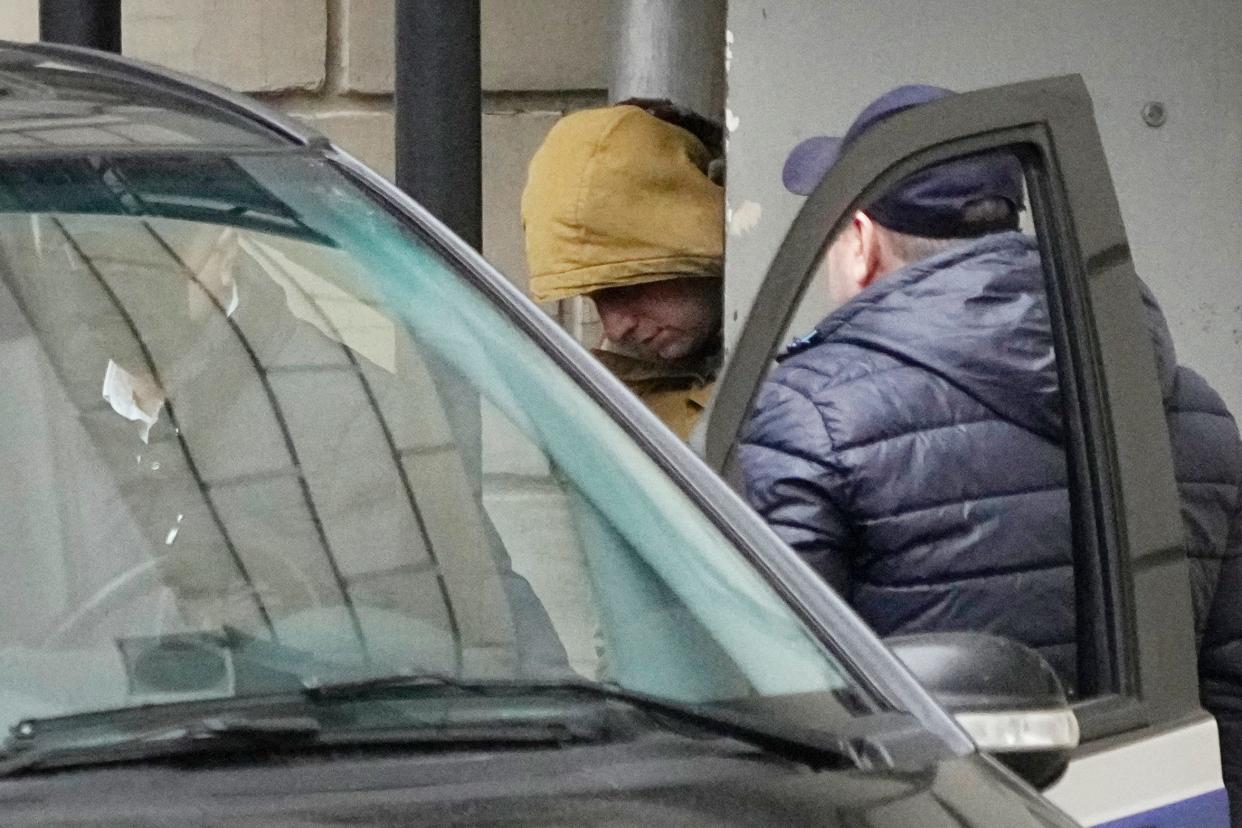From the editor: Gershkovich arrest a grim reminder of risks journalists face – even here

- Oops!Something went wrong.Please try again later.
News organizations across the globe have called for the release of Evan Gershkovich, a Wall Street Journal reporter accused last month by the Russian government of espionage.
Gershkovich, 31, worked in the Journal’s Moscow bureau. The newspaper vehemently denied his activities had any purpose other than news gathering, and the Committee to Protect Journalists was equally forceful in an email to the Russian embassy: “Gershkovich is a journalist, not a spy, and should be released immediately and without conditions.”
If convicted, he faces up to 20 years in prison.
Last week, the U.S. State Department designated Gershkovich as “wrongly detained,” a status that sets in motion stepped-up efforts to secure his release.
Gershkovich’s arrest is a stark reminder of the danger journalists face, not only abroad but in this country, as well. According to the Columbia Journalism Review, more than 140 journalists were assaulted in the United States in 2021, most while covering protests. Fifty-nine were arrested or detained. Those numbers are down from 2020, when Black Lives Matter protests contributed to an unprecedented number of journalists being assaulted, arrested or detained.
Hitting close to home
One of those reporters forcefully taken to the ground and detained by police in 2020 was The Enquirer’s Patrick Brennan, who was covering protests in Cincinnati after police in Minneapolis killed George Floyd. Fortunately, Brennan was quickly released, and I received a phone call from then Assistant Police Chief Paul Neudigate, who made it clear that Brennan was not under arrest and would not be charged. At the time, I said I hoped it would be a teachable moment, and it was. The Enquirer collaborated with police leadership to make sure First Amendment protections afforded to journalists is included in police training materials. We also discussed what we could do to help officers identify members of the press.
When covering protests, journalists understand the risks. What concerns me most about the safety of journalists at The Enquirer are the threats they endure from people who seek to have them silenced, emboldened by the shield of social media and exacerbated by our political divisiveness.
Enquirer education reporter Madeline Mitchell covers the culture wars taking place in our school districts and has been the target of such threats.
“When I covered the mascot change at Anderson High School, I received a direct message on Facebook that said, among other profanities: ‘You stupid (expletive) keep your ass out of Anderson it's none of your (expletive) business you stupid little (expletive) I'll come hunt your ass down stupid (expletive) and beat you like you deserve to be beaten.’
“It shows how little it takes for some folks to threaten a journalist,” Mitchell said.
'He scared me'
Sharon Coolidge, our city hall reporter, also is no stranger to threats of harm while covering a story.
“I had a person threaten to come to my house and bury me alive if I mentioned his name in the paper,” Coolidge said. “We get lots of hyperbolic threats, but he scared me. And you know, I did mention his name. It was pertinent to the story.”
In 2019, photographer Liz Dufour was part of a team of Enquirer journalists investigating a sex trafficking operation led by former city council member Michael Mearan in Portsmouth, Ohio. A woman with ties to Mearan had gone missing. Another had been found dead.
We need your support: Your subscription is vital to our efforts to provide independent local journalism. See our latest special offers here.
Mearan “absolutely hated me, and especially my camera,” Dufour said. “I got yelled at by him and his family plenty of times. I was never worried when I walked the streets to talk to people who had been trafficked by this man. But I sometimes wondered if I would open my hotel room door and someone would be standing there to harm me.”
After The Enquirer’s report, Mearan was charged with 18 counts relating to sex trafficking. He died before facing trial.
The detainment of Evan Gershkovich might seem a bit removed, even surreal, from us here in Cincinnati. The plot reads like a Russian spy novel. But it’s not.
I hope and pray the State Department succeeds in securing his release.
And I hope his arrest is a reminder that even in this country, the work of journalists requires dedication and bravery.
“What we do makes a difference, and that’s enough for me to keep going out and telling these important stories,” Dufour said.
Enquirer Executive Editor Beryl Love writes a biweekly column that takes you behind the scenes at The Enquirer. Occasionally, he shares his thoughts on local issues, particularly as they pertain to a free press and open government. Email him at blove@enquirer.com. He can’t respond personally to every email, but he reads them all.
This article originally appeared on Cincinnati Enquirer: Evan Gershkovich's arrest is a reminder of the risks journalists face

